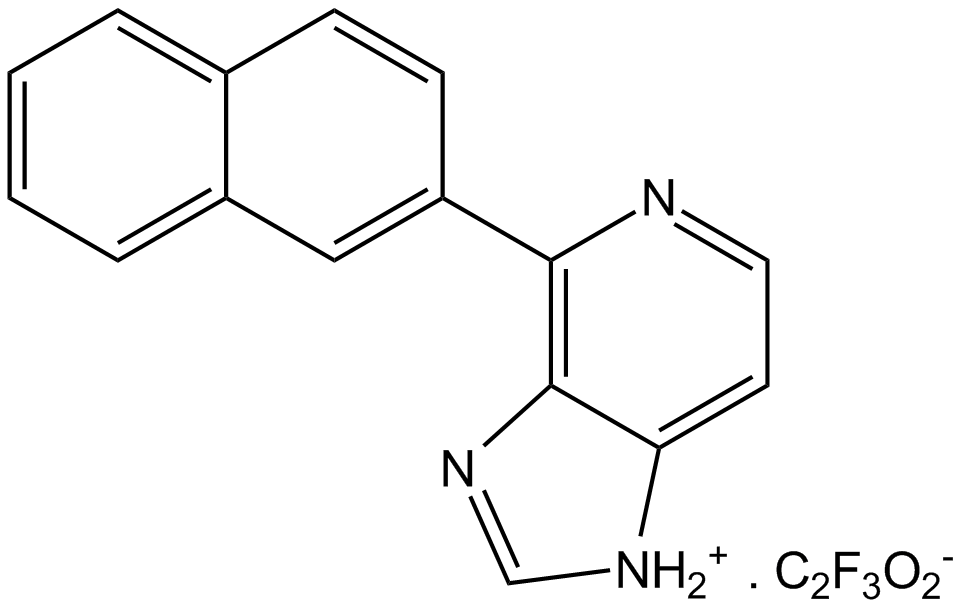
Chemical Structure
LysoGlow84 [1782983-52-1]

AG-CMA-1005
CAS Number1782983-52-1
Product group Chemicals
Estimated Purity>98%
Molecular Weight246.3 . 113.0
Overview
- SupplierAdipoGen Life Sciences
- Product NameLysoGlow84(tm) [1882878-94-5]
- Delivery Days Customer10
- CAS Number1782983-52-1
- CertificationResearch Use Only
- Estimated Purity>98%
- Molecular FormulaC16H12N3 . C2F3O2
- Molecular Weight246.3 . 113.0
- Scientific DescriptionCell/membrane permeable, non-toxic, pH-sensitive fluorescent dye (blue-green range) for live imaging of pH alteration in acidic organelles, lysosomes, autophagolysosomes, vesicles, cells, tissue and even small, transparent whole animals without side effects. Useful as intracellular pH indicator with a wide range of fluorescence (pH 3 to pH 13). pH-dependent dual-emission peaks, can be used for ratiometric evaluation of pH (F400/440). No esterases are involved, therefore no toxic by-products occur. Long-term stable; is barely metabolized. Fluorescence co-localizes with LysoTracker® Red DND-99. (LysoTracker® is a registered trademark of Molecular Probes, Inc.) - Chemical. CAS: 1782983-52-1. Formula: C16H12N3 . C2F3O2. MW: 246.3 . 113.0. Synthetic. Cell/membrane permeable, non-toxic, pH-sensitive fluorescent dye (blue-green range) for live imaging of pH alteration in acidic organelles, lysosomes, autophagolysosomes, vesicles, cells, tissue and even small, transparent whole animals without side effects. Useful as intracellular pH indicator with a wide range of fluorescence (pH 3 to pH 13). pH-dependent dual-emission peaks, can be used for ratiometric evaluation of pH (F400/440). No esterases are involved, therefore no toxic by-products occur. Long-term stable; is barely metabolized. Fluorescence co-localizes with LysoTracker® Red DND-99. (LysoTracker® is a registered trademark of Molecular Probes, Inc.)
- SMILES[O-]C(=O)C(F)(F)F.[NH2+]1C=NC2=C(N=CC=C12)C1=CC2=CC=CC=C2C=C1
- Storage Instruction-20°C,2°C to 8°C
- UNSPSC41116134
References
- The chemically synthesized Ageladine A-derivative LysoGlow84 stains lysosomes in viable mammalian brain cells and specific structures in the marine flatworm Macrostomum lignano: T. Mordhorst, et al.; Mar. Drugs 13, 920 (2015)
